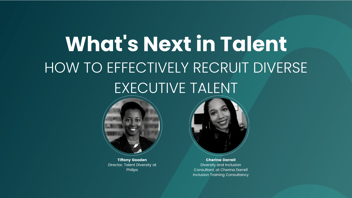Don’t let gaps in your employment history feel like a barrier to landing your dream C-suite or executive level job.
Rather than seeing resume gaps as obstacles, it’s time to embrace them as opportunities.
You can offer insight into your personality, work ethic, and values simply by knowing how to explain gaps in employment history effectively.
Your employment gap explanation is essentially your opportunity to demonstrate to your prospective employer how you’ve pursued professional and personal development. Consider this a chance to distinguish yourself as a candidate. After all, that’s what the interviewing process is all about.
To get started, let’s first outline what is considered a gap in employment.
What is an employment gap?
An employment gap is a period of time spent between jobs. Depending on the particular situation, gaps in work history can range anywhere from several weeks or months to years. Gaps in work history may be necessary for a variety of reasons, like taking care of sick family members, going back to school, taking time off to travel, parenting, layoffs, and more.
Employment gaps are more common than you may think, especially in light of the COVID-19 pandemic’s upheaval of the workplace and ongoing labor shortages. In fact, recruiters and employers are rethinking the significance of resume or employment gaps. Experts say resume or employment gaps are becoming less of a concern for recruiters and employers, according to recent reporting from the New York Times. Instead, companies are beginning to consider candidates from a more holistic perspective. Taking time away from work doesn’t necessarily mean an individual is not fit for a particular role.
But that doesn’t mean you won’t have to address your employment gap in your interview. It will likely be asked about, and as long as you know how to explain employment gaps in interviews, you’ll be on your way to starting the next chapter of your career. Now, let’s get started on crafting your strategy for how to explain gaps in employment.
How to explain gaps in employment history
The best way to explain gaps in work history is to do so honestly, simplistically, and confidently. Plan and practice ahead of time not only what you’d like to say, but how you’d like to say it. If you’re self-assured, it’s likely any concerns your interviewer may have will be put to rest.
Be honest
Be honest about why you have gaps in your employment history. This will demonstrate to your interviewer that you value transparency and authenticity, qualities that will serve you well as a senior executive.
Keep it simple
At the same time, it’s important to keep your explanation simple. You do not want to get too granular, at the risk of sounding overly negative or bogging your interviewer down with details.
Stay confident
With that in mind, be sure to explain your gap in employment history with confidence. If you know how to explain gaps in employment history in a clear, upbeat way, it’s likely the interviewer will be assured your experience is an asset to the company.
Read on to discover AboveBoard’s strategies for how to ace your employment gap explanation.
How to explain employment gap in interview
Your efforts to explain gaps in work history should ultimately point to your personal and/or professional growth during this time period. Whether you learned a new skill, met a critical need in your family, or made the jump to a new job, it’s important to explain gaps in employment history with a nod to your professional development.
Consider answering some of the following questions in your employment gap explanation:
- What did I learn about leadership during my employment gap?
- What knowledge, skills, or character traits did I develop during this time period? And how do they transfer to the workplace?
- Why am I a stronger candidate for this position because of my gap in employment history?
- What are my motivations for reentering the workforce now?
Now that you’ve successfully explained your gap in work history, it’s time to highlight why your experiences matter to your future workplace. Employers want to know what you uniquely bring to the table, and this is your chance to underscore why you’re a strong candidate because of your work history, not in spite of it.
Let your employment history work for you
Your gap in work history can be just one of the many assets that sets you apart as an executive, bringing diversity to your workplace and authenticity to your leadership.
After all, workplaces thrive when leaders embrace their stories, including those that come with employment gaps. At AboveBoard, we’re on a mission to offer transparent access to the executive hiring process for underrepresented groups, employment gaps and all. Will you join us?









